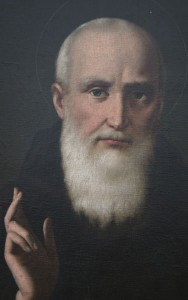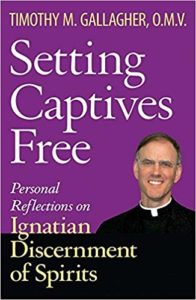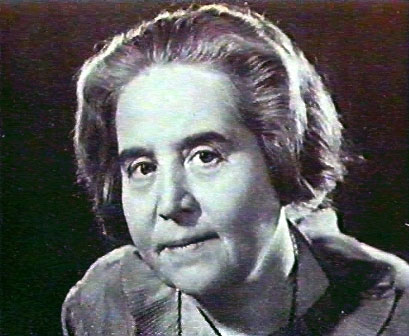Podcast: Play in new window | Download (Duration: 27:22 — 18.9MB) | Embed
Subscribe: Apple Podcasts | Spotify | Amazon Music | Android | Pandora | iHeartRadio | JioSaavn | Podchaser | Gaana | Podcast Index | Email | TuneIn | Deezer | Anghami | RSS | More

Episode 3 “Heaven in Faith” Day 2 Prayer 1 – “The Kingdom of God is Within You”
Day 3 First Prayer
5. “The kingdom of God is within you.” Awhile ago God invited us to “remain in Him,” to live spiritually in His glorious heritage, and now He reveals to us that we do not have to go out of ourselves to find Him: “The kingdom of God is within”! . . . St. John of the Cross says that “it is in the substance of the soul where neither the devil nor the world can reach” that God gives Himself to it; then “all its movements are divine, and although they are from God they also belong to the soul, because God works them in it and with it.”
6. The same saint also says that “God is the center of the soul. So when the soul with all” its “strength will know God perfectly, love and enjoy Him fully, then it will have reached the deepest center that can be attained in Him.” Before attaining this, the soul is already “in God who is its center,” “but it is not yet in its deepest center, for it can still go further. Since love is what unites us to God, the more intense this love is, the more deeply the soul enters into God and the more it is centered in Him. When it “possesses even one degree of love it is already in its center”; but when this love has attained its perfection, the soul will have penetrated into its deepest center. There it will be transformed to the point of becoming very like God.” To this soul living within can be addressed the words of Père Lacordaire to St. Mary Magdalene: “No longer ask for the Master among those on earth or in Heaven, for He is your soul and your soul is He.”
Elizabeth of the Trinity. The Complete Works of Elizabeth of the Trinity, vol. 1 (featuring a General Introduction and Major Spiritual Writings) (Elizabeth of the Trinity Complete Work) (pp. 95-96). ICS Publications. Kindle Edition.
Discerning Hearts Reflection Questions
We would like to thank Miriam Gutierrez for providing “the voice” of St. Elizabeth for this series
For other episodes in the series visit the Discerning Hearts page for Dr. Anthony Lilles
Anthony Lilles, S.T.D., has served the Church and assisted in the formation of clergy and seminarians since 1994. Before coming to St. Patrick’s, he served at seminaries and houses of formation in the Archdiocese of Denver and the Archdiocese of Los Angeles. The son of a California farmer, married with young adult children, holds a B.A. in theology from the Franciscan University of Steubenville with both the ecclesiastical licentiate and doctorate in spiritual theology from the Pontifical University of Saint Thomas Aquinas in Rome (the Angelicum). An expert in the writings of St. Elizabeth of the Trinity and the Carmelite Doctors of the Church, he co-founded the Avila Institute for Spiritual Formation and the High Calling Program for priestly vocations. He also founded the John Paul II Center for Contemplative Culture, which hosts symposiums, retreats, and conferences. In addition to his publications, he blogs at www.beginningtopray.com .

 St. Elizabeth’s writings illuminate the concept that the Kingdom of God is internal, a profound insight shared with St. John of the Cross, who believed that in the soul’s substance, where worldly and evil influences cannot reach, God imparts Himself, making every movement divine. This inner sanctuary, untouched by external forces, becomes the focal point for spiritual growth and intimacy with God, achievable through love, which binds the soul to its Creator. The more intense this love, the deeper the soul’s entry into God, culminating in a unity that transforms the individual into a reflection of the divine.
St. Elizabeth’s writings illuminate the concept that the Kingdom of God is internal, a profound insight shared with St. John of the Cross, who believed that in the soul’s substance, where worldly and evil influences cannot reach, God imparts Himself, making every movement divine. This inner sanctuary, untouched by external forces, becomes the focal point for spiritual growth and intimacy with God, achievable through love, which binds the soul to its Creator. The more intense this love, the deeper the soul’s entry into God, culminating in a unity that transforms the individual into a reflection of the divine.

 St. John Paul II, notably influenced by Elizabeth, exemplifies her wide-reaching impact, showcasing her role in deepening the spiritual lives of many, including his own. Despite limited access to the full Bible, Elizabeth’s reflections demonstrate a profound scriptural engagement, akin to Lectio Divina, showcasing her deep understanding and integration of scripture into her reflections on prayer and communion with God.
St. John Paul II, notably influenced by Elizabeth, exemplifies her wide-reaching impact, showcasing her role in deepening the spiritual lives of many, including his own. Despite limited access to the full Bible, Elizabeth’s reflections demonstrate a profound scriptural engagement, akin to Lectio Divina, showcasing her deep understanding and integration of scripture into her reflections on prayer and communion with God.




 In part one of this conversation, Fr. Timothy Gallagher and Kris McGregor engage in a profound discussion on the nature of prayer, particularly in the context of suffering and spiritual desolation. They both point out the importance of prayer as more than just verbal communication with God, making note of its holistic nature, which involves the entire being united in love and longing for God.
In part one of this conversation, Fr. Timothy Gallagher and Kris McGregor engage in a profound discussion on the nature of prayer, particularly in the context of suffering and spiritual desolation. They both point out the importance of prayer as more than just verbal communication with God, making note of its holistic nature, which involves the entire being united in love and longing for God.


